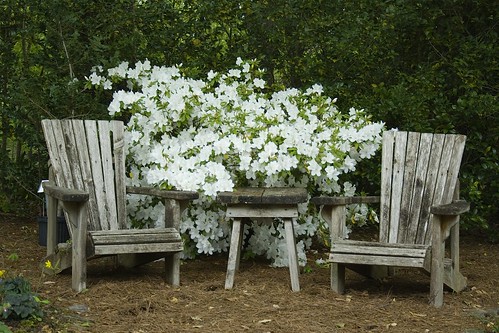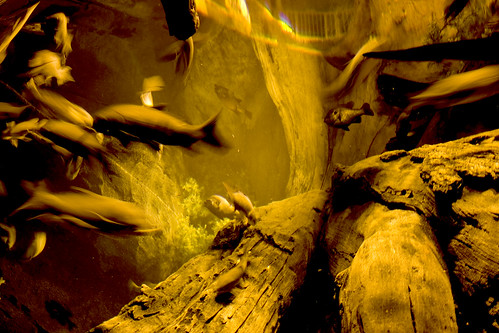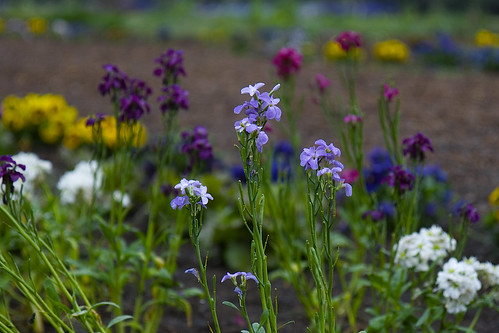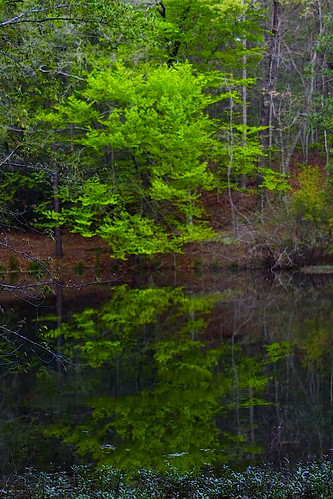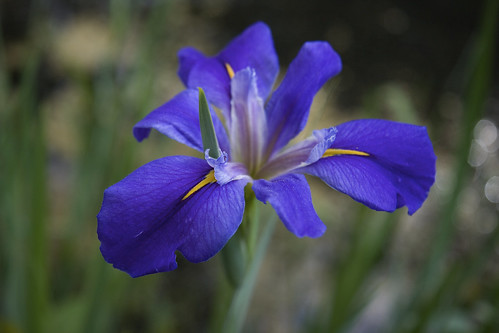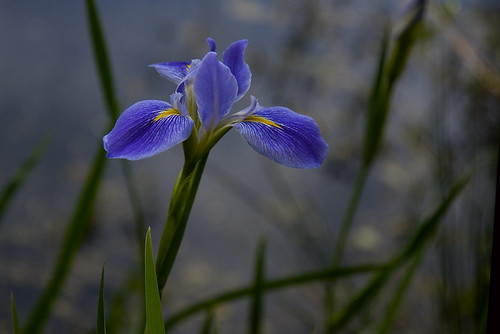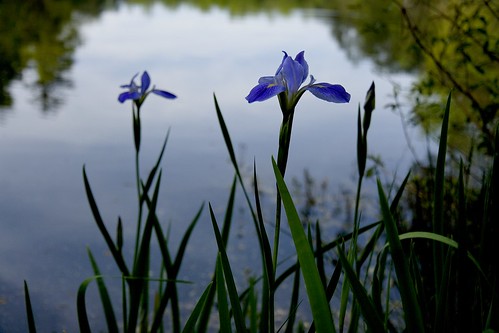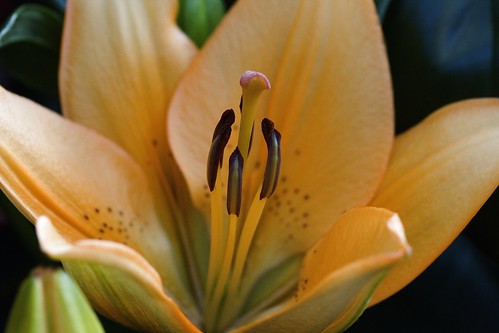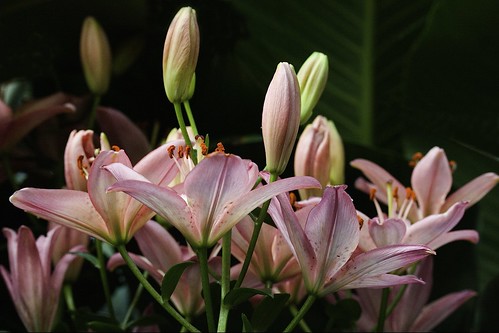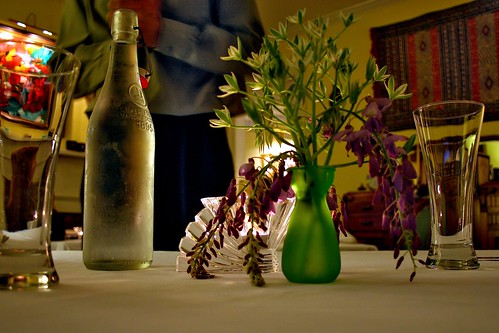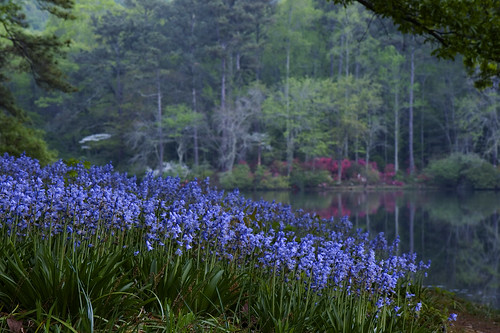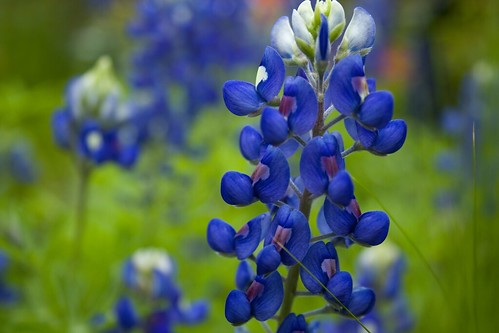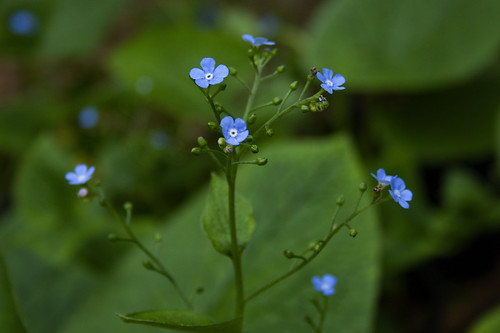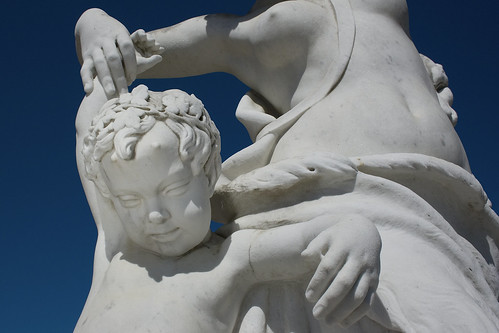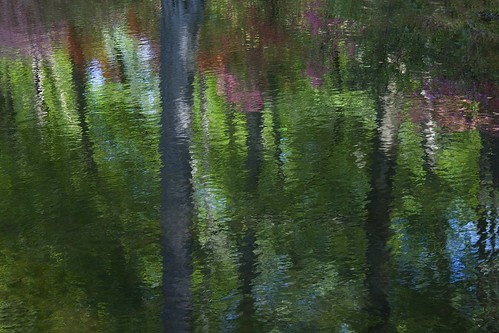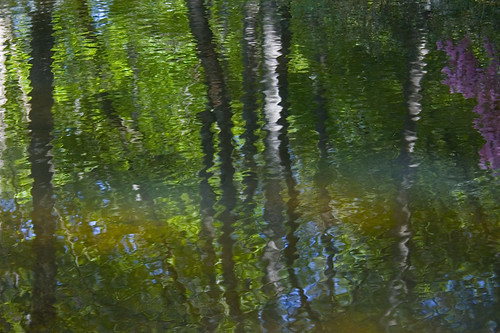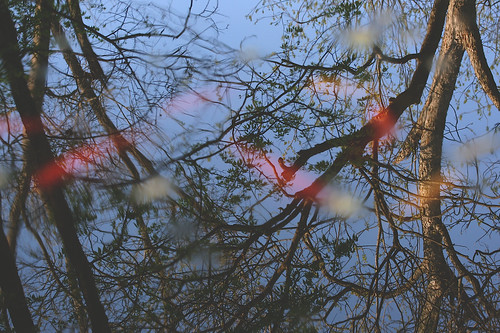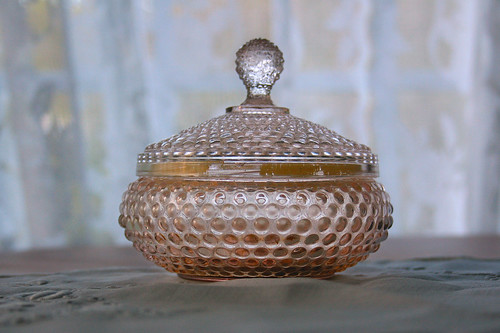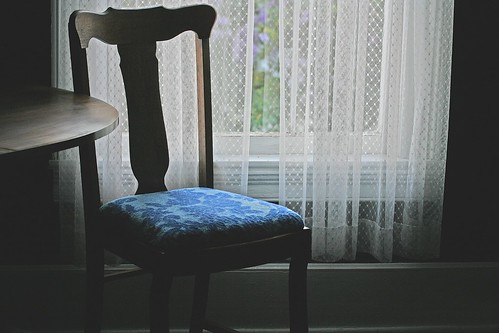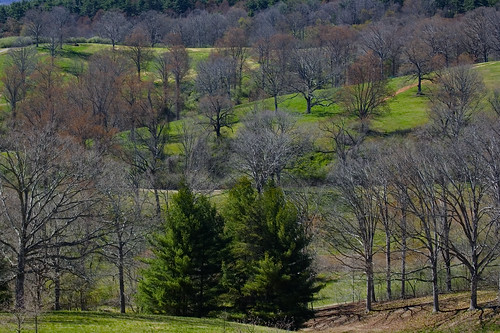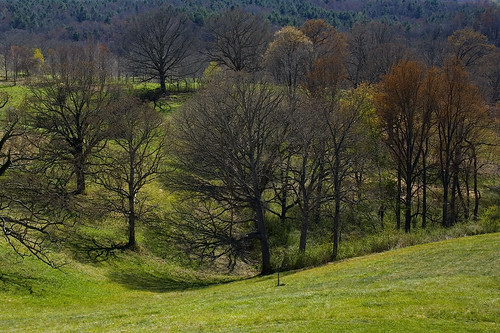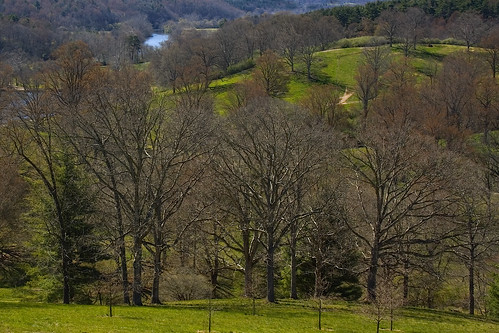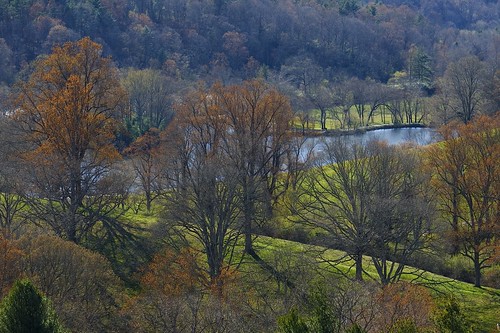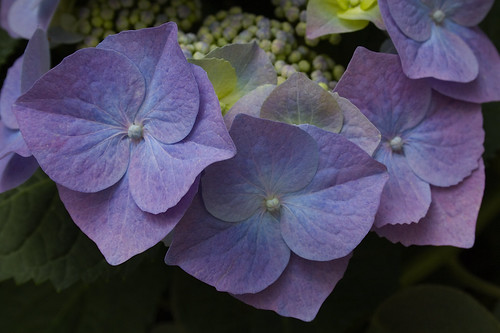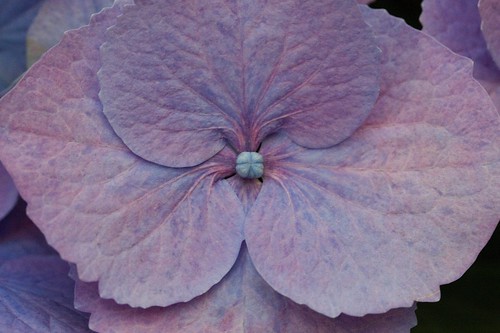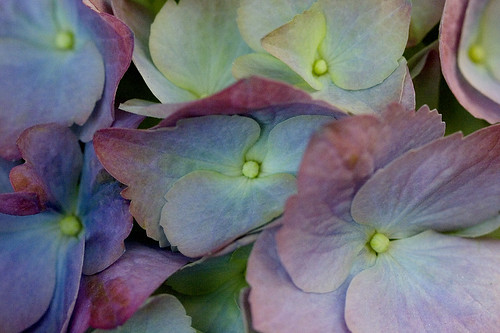Thursday, May 31
we two, how long we were fool'd
We two, how long we were fool'd,
Now transmuted, we swiftly escape as Nature escapes,
We are Nature, long have we been absent, but now we return,
We become plants, trunks, foliage, roots, bark,
We are bedded in the ground, we are rocks,
We are oaks, we grow in the openings side by side,
We browse, we are two among the wild herds spontaneous as any,
We are two fishes swimming in the sea together,
We are what locust blossoms are, we drop scent around lanes mornings and evenings,
We are also the coarse smut of beasts, vegetables, minerals,
We are two predatory hawks, we soar above and look down,
We are two resplendent suns, we it is who balance ourselves orbic and stellar, we are as two comets,
We prowl fang'd and four-footed in the woods, we spring on prey,
We are two clouds forenoons and afternoons driving overhead,
We are seas mingling, we are two of those cheerful waves rolling over each other and interwetting each other,
We are what the atmosphere is, transparent, receptive, pervious, impervious,
We are snow, rain, cold, darkness, we are each product and influence of the globe,
We have circled and circled till we have arrived home again, we two,
We have voided all but freedom and all but our own joy.
-- Walt Whitman (b. 31 May 1819), from Leaves of Grass
The Walt Whitman Archive
Posted by
rb
at
5/31/2007
![]()
Wednesday, May 30
'I try to follow'
Did the people he photographed in the Dominican Republic know who he was?
"Sometimes someone would come up to me and say, 'You're the guy from Sex and the City.' "
Did he ever join in doing the merengue during a photo shoot?
"A couple of times. I can do a little merengue, It's graceful, but it's difficult to dance. To dance it, you have to seriously study the movements. I try to get a partner who knows what she's doing, and I try to follow."
How about the tango?
"I can't dance the tango to save my life," he says.
-- Mikhail Baryshnikov, interviewed by Milton Esterow in 'A Little Dance with a Digital Camera' ARTnews May 2007
ARTnews
Mikhail Baryshnikov: Dominican Moves
Posted by
rb
at
5/30/2007
![]()
Monday, May 28
like a hand laid upon the heart
For fragrance is indeed what the past well knew it to be, a refreshment and a strength, a sweet and human pleasure, an exorciser of demons from the body and the besieged and troubled spirit. Subtlest of influences, touching the emotion directly, asking nothing from the mind, it not only wakes in us an emotion of place, but summons up as well a poignant emotion of ourselves as we were in time and the place remembered. The odor of a ploughed field in the spring is like a hand laid upon the heart, having in it all the beauty, the poignancy, and the tenderness of earthly living, all the poetry of the melancholy and ecstasy of spring, of the branch, the new leaf and the warm wind, and the sinking of some last great and solitary winter star.
-- Henry Beston Herbs and the Earth
Posted by
rb
at
5/28/2007
![]()
Friday, May 25
towards the sky
She stood before the mirror in her white slip. As she curved her arm over her head in washing, she remembered how she had sat on the fire escape when a little girl and watched the big girls in the flats across the yards getting ready for their dates. Was some one watching her as she had once watched?
She looked towards the window. Yes, across two yards she saw a little girl sitting on a fire escape with a book in her lap and a bag of candy at hand. The girl was peering through the bars at Francie. Francie knew the girl, too. She was a slender little thing of ten, and her name was Florry Wendy.
Francie brushed out her long hair, braided it and wound the braids around her head. She put on fresh stockings and white high-heeled pumps. Before she slipped a fresh pink linen dress over her head, she sprinkled violet sachet powder on a square of cotton and tucked it inside her brassiere . . .
She looked across the yards and saw that Florry was still staring at her through the bars of the fire escape. Francie waved and called:
"Hello, Francie."
"My name ain't Francie," the little girl yelled back. "It's Florry, and you know it, too."
"I know," said Francie.
She looked down into the yard. The tree whose leaf umbrellas had curled around, under and over her fire escape had been cut down because the housewives complained that wash on the lines got entangled in its branches. The landlord had sent two men and they had chopped it down.
But the tree hadn't died . . . it hadn't died.
A new tree had grown from the stump and its trunk had grown along the ground until it reached a place where there were no wash lines above it. Then it had started to grow towards the sky again.
Annie, the fir tree, that the Nolans had cherished with waterings and manurings, had long since sickened and died. But this tree in the yard—this tree that men chopped down . . . this tree that they built a bonfire around, trying to burn up its stump—this tree lived!
It lived! And nothing could destroy it.
Once more she looked at Florry Wendy reading on the fire escape.
"Goodbye, Francie." she whispered.
She closed the window.
-- Betty Smith A Tree Grows in Brooklyn
Posted by
rb
at
5/25/2007
![]()
Thursday, May 24
that simple feeling
What I am saying will be taken as a mad paradox, at which one can only be amazed, and yet I cannot help saying what I think—namely, that people of our circle, of whom some write verses, stories, novels, operas, symphonies, sonatas, paint various sorts of pictures, make sculptures, while others listen to them and look at them, and still others evaluate and criticize it all, argue, denounce, triumph, erect monuments to each other, and have done so over the course of several generations, that all these people, artists, public, and critics, with very few exceptions, have never, save in early childhood and youth, before they heard any reasoning about art, experienced that simple feeling, familiar to the simplest man and even to a child, of being infected by the feelings of another, which makes us rejoice over another's joy, grieve over another's grief, merge our souls with another's, and which constitutes the essence of art, and that therefore these people not only cannot distinguish true art from its counterfeits, but always mistake the worst and most false for genuine art, without noticing the genuine, because counterfeits are always more flashy, while true art is modest . . . The effect of the true work of art is to abolish in the consciousness of the perceiver the distinction between himself and the artist, and not only between himself and the artist, but also between himself and all who perceive the same work of art. It is this liberation of the person from his isolation from others, from his loneliness, this merging of the person with others, that constitutes the chief attractive force and property of art.
-- Leo Tolstoy What is Art?
Translated by Richard Pevear and Larissa Volokhonsky
Posted by
rb
at
5/24/2007
![]()
Tuesday, May 22
Monday, May 21
Sunday, May 20
Eternity is in love with the productions of time.
-- William Blake The Marriage of Heaven and Hell
Posted by
rb
at
5/20/2007
![]()
Saturday, May 19
stars
Of these same three things the planets and all the stars consist; and not only the stars but all bodies that grow and are born from them ... The inner stars of man are, in their properties, kind, and nature, by their course and position, like his outer stars, and different only in form and material. For as regards their nature, it is the same in the ether and in the microcosm.
-- Paracelsus Paracelsus: Selected Writings, ed. Jolande Jacobi
Translated by Norbert Guterman
Paracelsus
Posted by
rb
at
5/19/2007
![]()
Friday, May 18
the question
The study of electricity to-day comprehends a vast range of phenomena, in all of which we are brought back ultimately to the fundamental conceptions of electric charge and of electric and magnetic fields. These conceptions are at present ultimates, not explained in terms of others. In the past there have been various attempts to explain them in terms of electric fluids and aethers having the properties of material bodies known to us by the study of mechanics. To-day, however, we find that the phenomena of electricity cannot be so explained, and the tendency is to explain all other phenomena in terms of electricity, taken as a fundamental thing. The question, "What is electricity?" is therefore essentially unanswerable, if by it is sought an explanation of the nature of electricity in terms of material bodies.
-- Professor Harold A. Wilson, writing on "Electricity" Encyclopaedia Britannica (1947)
This is reminiscent of Lao-tzu beginning, "The Tao which can be explained is not the eternal Tao," and then going on to write a whole book about it; for the article which follows this paragraph is a vastly learned discussion of the properties and behavior of this unknown "ultimate."
-- Alan Watts Tao: The Watercourse Way (in which Wilson's passage is quoted)
Posted by
rb
at
5/18/2007
![]()
Thursday, May 17
[I]n so far as my hand knows hardness and softness, and my gaze knows the moon's light, it is as a certain way of linking up with the phenomenon and communicating with it. Hardness and softness, roughness and smoothness, moonlight and sunlight, present themselves in our recollection not pre-eminently as sensory contents but as certain kinds of symbioses, certain ways the outside has of invading us and certain ways we have of meeting this invasion . . .
-- Maurice Merleau-Ponty Phenomenology of Perception
Translated by Colin Smith
Posted by
rb
at
5/17/2007
![]()
Wednesday, May 16
Downstream
We give in to the persuasions of the river, floating
Swiftly downstream as well as the leaves beside us,
Ahead of us, with little choice
Which way it may be next
That we find ourselves
One boat-length farther along, taking the rough with the smooth,
To the slackness of pools, down long, eddying riffles,
To the rush of spillways narrowing
And steepening suddenly
To white water
Where the river is leaving everything to chance and turning
Over and interrupting its own half-motions
Constantly in bursts and arches,
Mantling, spun into tendrils,
Its wild gestures
As memorable at a glance as marble but dying, reborn
Only another glance away, as the center
Of our attention, shifting at random
Everywhere like the sunlight,
As caught by the play
Of light on all these surfaces, churnings and interweavings,
Upheavals, blossomings, an impulsive garden
Where we search and search as if for answers
And see its one reply:
Nothing is the same
Ever. This intricate bewilderment of currents,
In its least ripple, is unrepeatable.
The windbreak of alders we pass now,
The gravely leaning pale-boned
Row gone ashen,
Love, is another river, its bed channeled by seasons.
Our faces come near each other, mysterious
As water always. We cross a pool,
Translucent, the stones below us
Glimmering, remaining.
-- David Wagoner
David Wagoner
Posted by
rb
at
5/16/2007
![]()
Tuesday, May 15
There is a quality to reality when I am exhausted: it no longer seems "photographed" but "painted"—and therefore much more intended.
-- Rodger Kamenetz Terra Infirma
Rodger Kamenetz
Posted by
rb
at
5/15/2007
![]()
Monday, May 14
silences
For there are two silences: a silence can be no more than the absence of noise, it can be inert, or at the other end of the scale, there is a nothingness that is infinitely alive, and every cell in the body can be penetrated and vivified by this second silence's activity. The body then knows the difference between two relaxations—the soft floppiness of a body weary of stress telling itself to relax, and the relaxation of an alert body when tensions have been swept away by the intensity of being. The two silences, enclosed within an even greater silence, are poles apart.
-- Peter Brook Threads of Time
Posted by
rb
at
5/14/2007
![]()
Sunday, May 13
known sound
After I can no longer see her
she says to me For a while there is all
that asking about how the body becomes
itself as it goes and what it is becoming
what is happening to it where it is going
step by step one moment at a time
and then all that falls aside like a curtain
and the body is gone with its worn questions
hollow joints marrow and breath and instead there is
the way whatever lived in it goes on as itself
neither before nor after neither moving nor still
and while the body was going somewhere
the way was there to begin with in the feet themselves
wherever they went and you know the sound
-- W.S. Merwin
Posted by
rb
at
5/13/2007
![]()
Saturday, May 12
spring reflections 2
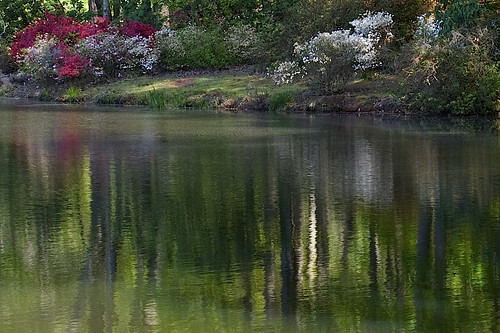
Midway along our road of life I woke
to find myself in a secret dark wood,
for I had lost the narrow path. To evoke
what it was like—how hard, I barely could.
This wood was savage, dense and strange! The thought
of it renews those fears that I withstood,
a place so bitter, only to be caught
in death is worse. Yet there I found my share
of good, so now I'll tell what else it brought.
I cannot rightly say how I came there,
I was so drugged with sleep the moment when
I lost the true way, wandering unaware,
Yet when . . . I looked up, saw the hill's wings with their clean
early light cast from the planet whose sight
leads men straightly on every road. The scene
diminished and I felt the force of fright
lessen in the lake of my heart, that fear
I felt so piteously throughout the night.
-- Dante Alighieri The Divine Comedy
Translated by Charles S. Singleton
Posted by
rb
at
5/12/2007
![]()
Friday, May 11
And so, looking into the pure curve
is it that we would compel straightness into it?
At the end of the road there are things we can say to each other
of truth, mystery, immeasurable magnitude.
+
In the immeasurable magnitude of what has been given us
sometimes it is to understand existence as a pure point
where ten-thousand laser beams meet. There our distances are vaporized.
Now I look at you in an entire recognition. Creation has become a lens.
-- Peyton Houston, from XVI Complex Songs at the Borders of Silence
Posted by
rb
at
5/11/2007
![]()
Thursday, May 10
Lullaby
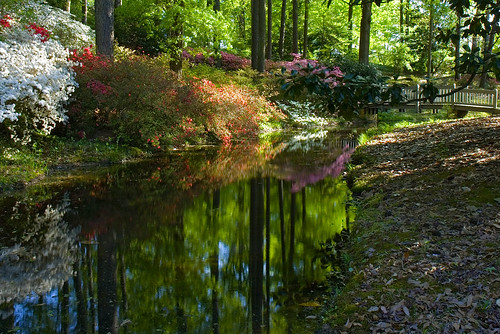
Lay your sleeping head, my love,
Human on my faithless arm;
Time and fevers burn away
Individual beauty from
Thoughtful children, and the grave
Proves the child ephemeral:
But in my arms till break of day
Let the living creature lie,
Mortal, guilty, but to me
The entirely beautiful.
Soul and body have no bounds:
To lovers as they lie upon
Her tolerant enchanted slope
In their ordinary swoon,
Grave the vision Venus sends
Of supernatural sympathy,
Universal love and hope;
While an abstract insight wakes
Among the glaciers and the rocks
The hermit's carnal ecstasy.
Certainty, fidelity
On the stroke of midnight pass
Like vibrations of a bell
And fashionable madmen raise
Their pedantic boring cry:
Every farthing of the cost,
All the dreaded cards foretell,
Shall be paid, but from this night
Not a whisper, not a thought,
Not a kiss nor look be lost.
Beauty, midnight, vision dies:
Let the winds of dawn that blow
Softly round your dreaming head
Such a day of welcome show
Eye and knocking heart may bless,
Find our mortal world enough;
Noons of dryness find you fed
By the involuntary powers,
Nights of insult let you pass
Watched by every human love.
-- W.H. Auden
for Yen and Jesse
Posted by
rb
at
5/10/2007
![]()
Wednesday, May 9
below the surface-stream, shallow and light
Below the surface-stream, shallow and light,
Of what we say we feel—below the stream,
As light, of what we think we feel—there flows
With noiseless current strong, obscure and deep,
The central stream of what we feel indeed.
-- Matthew Arnold
Posted by
rb
at
5/09/2007
![]()
Tuesday, May 8
care
You know that in your soul there are certain areas—memories, pain, secrets—that are private, that you would only share with the person you love and trust the most. You do not open your heart and show it to just anyone . . .
Desire is not love. Love is something much more responsible. It has care in it.
-- Thich Nhat Hanh Teachings on Love
Posted by
rb
at
5/08/2007
![]()
Monday, May 7
something imagined
The work of art proper is something not seen or heard, but something imagined.
-- R.G. Collingwood The Principles of Art
Posted by
rb
at
5/07/2007
![]()
Late Spring
Coming into the high room again after years
after oceans and shadows of hills and the sounds of lies
after losses and feet on stairs
after looking and mistake and forgetting
turning there thinking to find
no one except those I knew
finally I saw you
sitting in white
already waiting
you of whom I had heard
with my own ears since the beginning
for whom more than once
I had opened the door
believing you were not far
-- W.S. Merwin
Posted by
rb
at
5/07/2007
![]()
Sunday, May 6
how to dress
To be too much in the fashion is as vulgar as to be too far behind it. No really well-bred man follows every new cut that he sees in his tailor's fashion-book. Only very young men and those not of the most aristocratic circles, are guilty of this folly.
In the morning wear frock-coats, double-breasted waistcoats, and trousers of light or dark colours, according to the season.
In the evening, though only in the bosom of your own family, wear only black, and be as scrupulous to put on a dress-coat as if you expected visitors. If you have sons, bring them up to do the same.
For evening At Homes, dinner-parties, and balls, wear a black dress-coat, black trousers, black or white waistcoat, white cravat, white kid gloves, and thin patent-leather boots. A black cravat may be worn in full dress, but it is not so correct as a white one.
A tail-coat should be worn on all but informal occasions. A dinner-jacket may be worn for home or informal dinners, or when going to the theatre with men only . . .
For daytime, in the park lounge suits, with bowlers, straw or Homburg hats, are worn in the morning, but after lunch a frock-coat or morning coat and silk hat must take their place. With a black frock-coat dark trousers should be worn. Brown boots must, of course, never be worn with a frock-coat . . .
In town, gloves should be worn out of doors. A stick may be carried, but not when going to church.
-- Etiquette for Gentlemen: Rules for Perfect Conduct (1890)
Posted by
rb
at
5/06/2007
![]()
Saturday, May 5
Friday, May 4
a way of saying
Sometimes something wants to be said, sometimes a way of saying wants to be used.
-- Paul Valéry "Poésie et Pensée Abstraite" from Modern French Poets on Poetry ed. Robert Gibson
Posted by
rb
at
5/04/2007
![]()
Thursday, May 3
like the green foliage
Man is a thinking reed but his great works are done when he is not calculating and thinking. "Childlikeness" has to be restored with long years of training in the art of self-forgetfulness. When this is attained, man thinks yet he does not think. He thinks like the showers coming down from the sky; he thinks like the waves rolling on the ocean; he thinks like the stars illuminating the nightly heavens; he thinks like the green foliage shooting forth in the relaxing spring breeze. Indeed, he is the showers, the ocean, the stars, the foliage.
-- D.T. Suzuki, in the introduction to Zen in the Art of Archery by Eugen Herrigel
Posted by
rb
at
5/03/2007
![]()
Wednesday, May 2
close by the garden wall
[I]n the village of World's End, at the furthest end of Last Street, there is a hole that you take to be a well, close by the garden wall, but that if you lower yourself by your hands over the edge of the hole, and feel about with your feet till they find a ledge, that is the top step of a flight of stairs that takes you down over the edge of the World. "For all that men know, those stairs may have a purpose and even a bottom step," said the arch-idolater, "but discussion about the lower flights is idle." Then the teeth of Pombo chattered, for he feared the darkness, but he that made idols of his own explained that those stairs were always lit by the faint blue gloaming in which the World spins.
-- Lord Dunsany The Book of Wonder
Lord Dunsany
Lord Dunsany at Wikipedia
The Book of Wonder
Posted by
rb
at
5/02/2007
![]()
